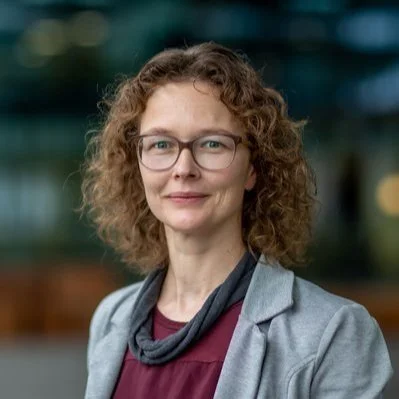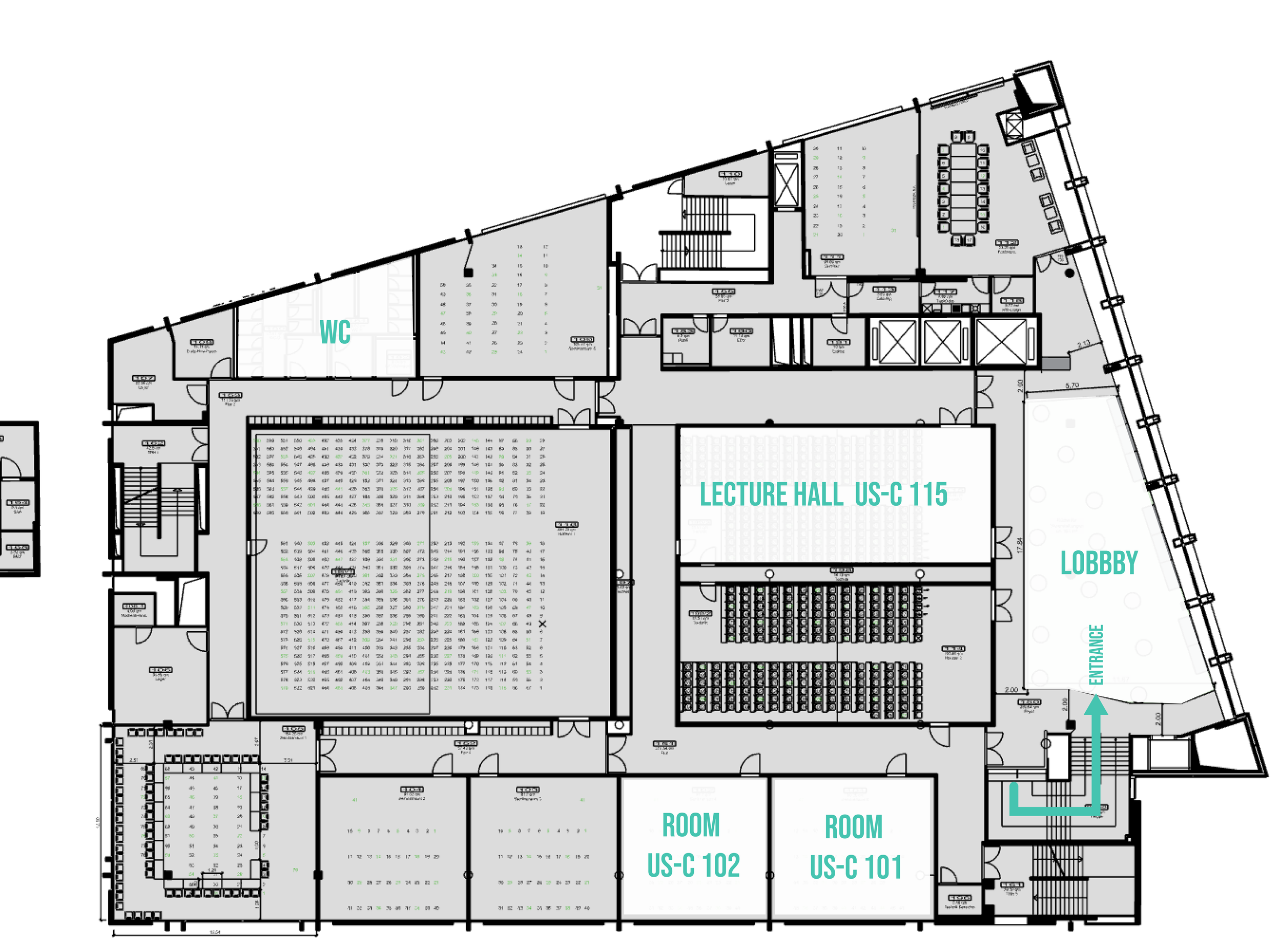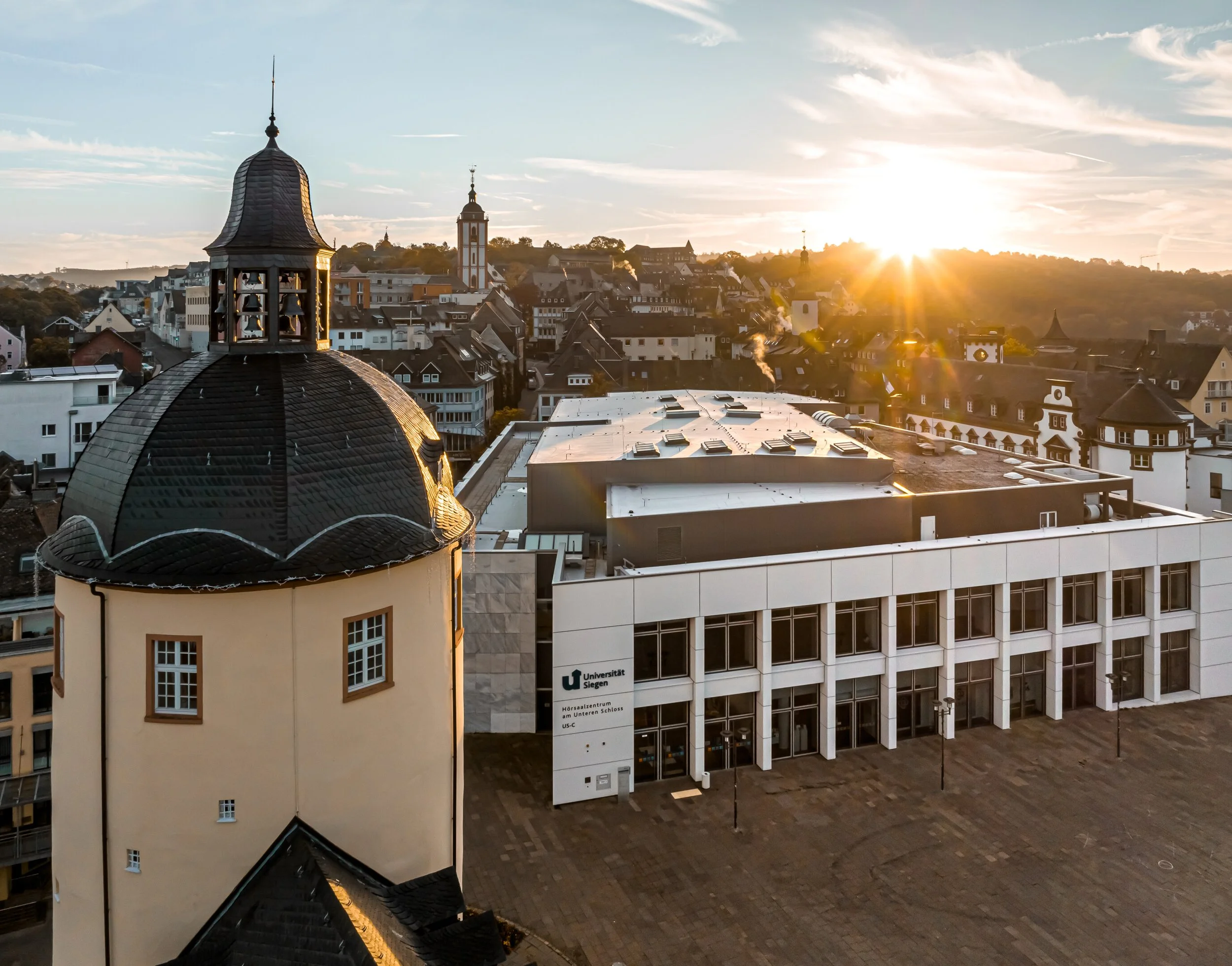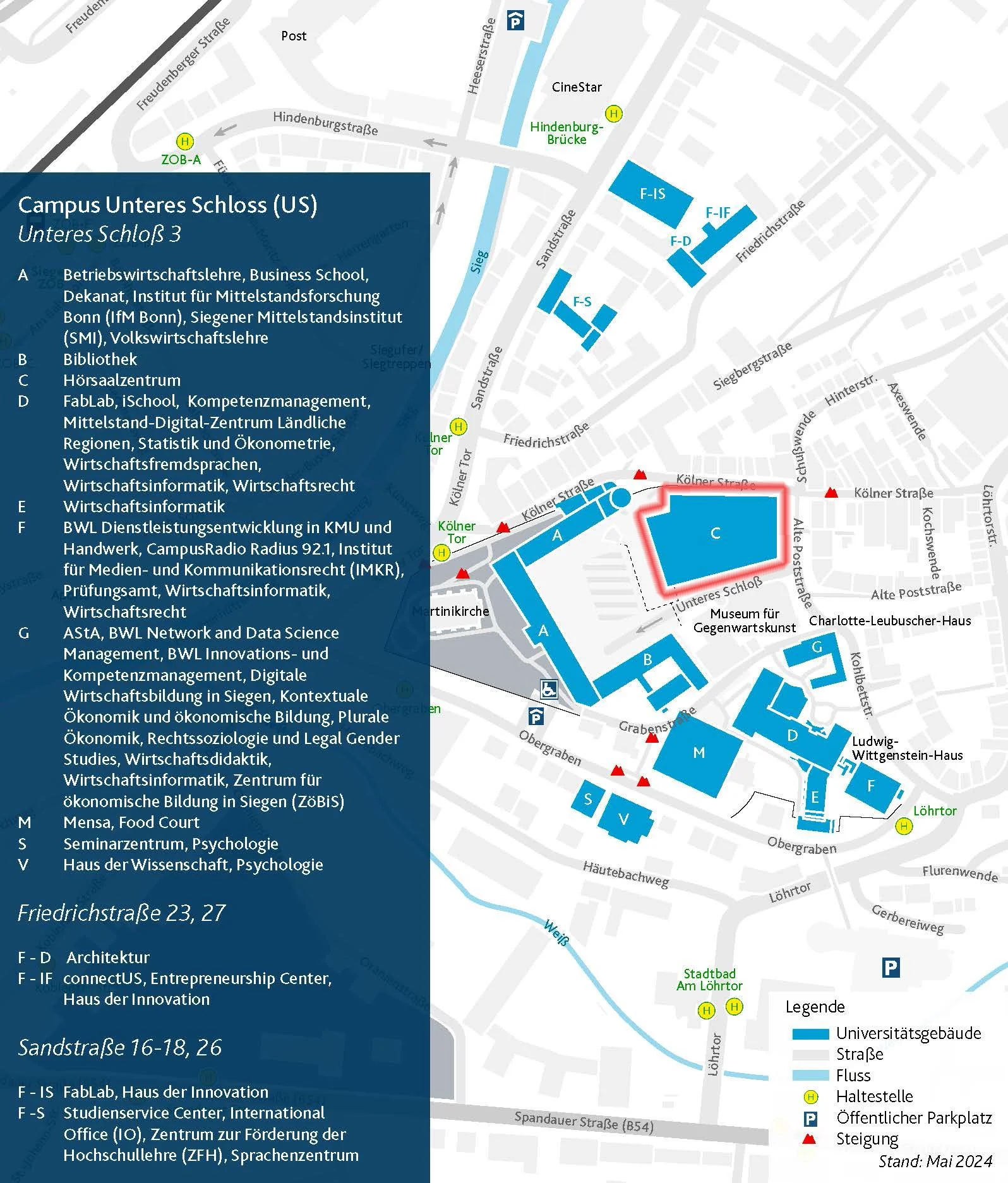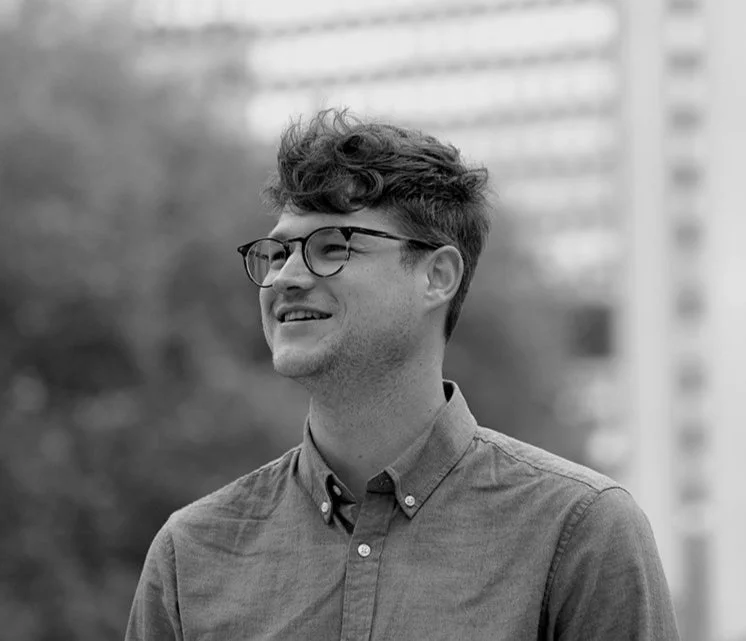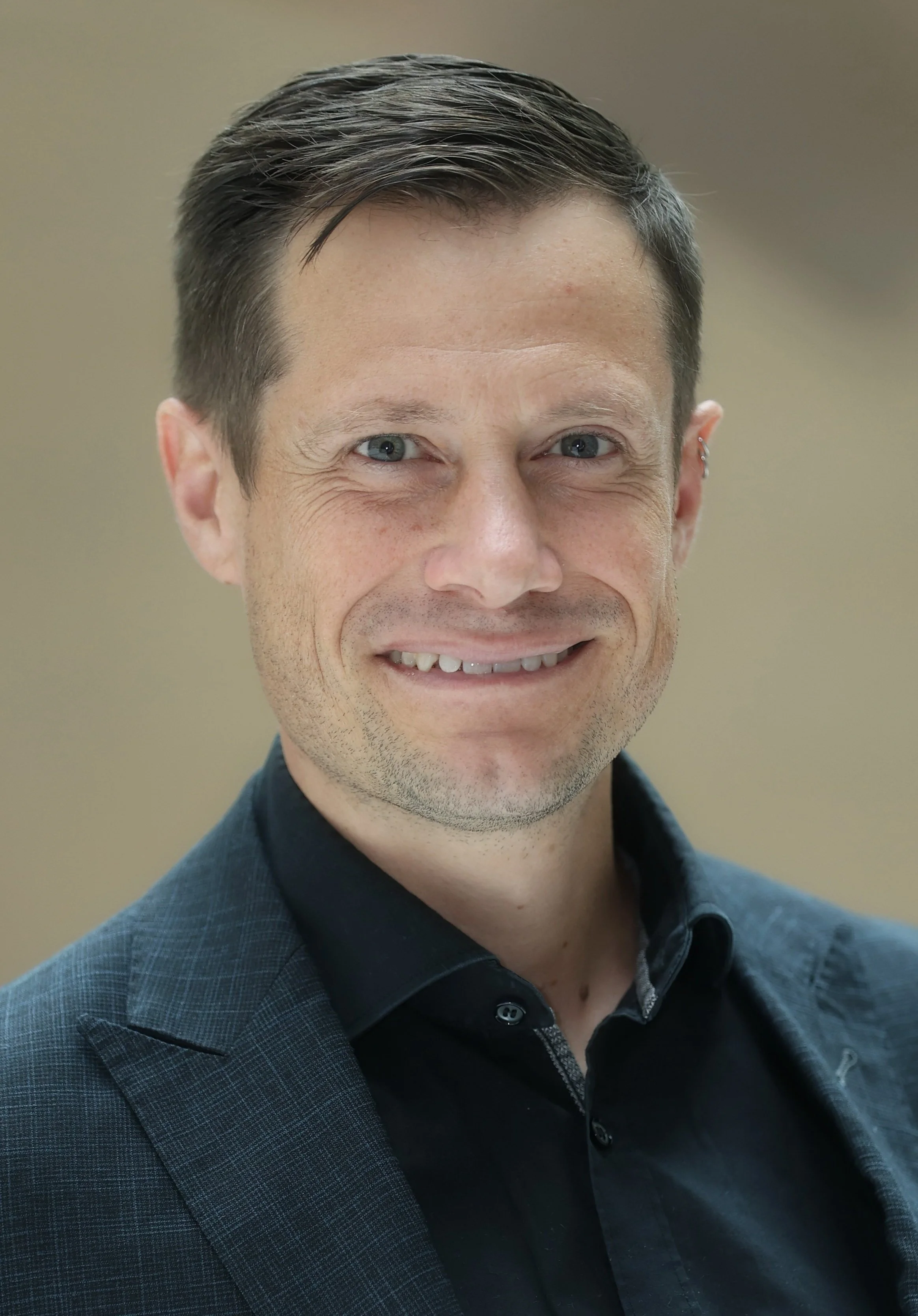Approaching technologically induced problems with technologies?
Designing Sustainable Economies
10 SepT
2024
What is the symposium about?
Technology is crucial in shaping socioeconomic and environmental outcomes, both at the regional and the global level. Be it large language models, renewable energy, grid infrastructures, virtual reality, self-driving cars, or carbon capture and storage - technology is changing us and the economic systems we live in.
On the one hand, technology is entangled within the problems of climate change, biodiversity loss, and other global challenges. The ever-continuing introduction of new technologies or the updating of existing ones that promise prosperity and well-being have fueled a consumer society that expands its environmental footprint and increasingly depends on technology. This has led to the excessive use of natural resources and overshooting planetary and societal boundaries.
On the other hand, many technologies bear potential for sustainable transformation. Renewable energy will be the backbone of a sustainable future economy and concepts for sustainable mobility, energy, food, or housing systems all entail some forms of new or different technologies.
Challenge accepted?
The challenge is to design resource-efficient and circular technology that goes hand in hand with a socially and environmentally just and sufficient mode of living. This requires redesigning the development, production, and use of technologies in a way that considers the needs of current and future generations and the planetary boundaries. But how to design such alternative and transformative technologies? What economic systems are needed to foster the necessary ecological and economic transformation?
Our symposium will discuss
these and other questions!
The one-day event addresses researchers and students, business practitioners, civil society stakeholders, and policy-makers interested in the intersection between technology and sustainability. We are delighted to invite you to participate in this symposium, which will lay the foundation for exciting, new research projects that identify pathways towards technology that can help create a prosperous and just society within planetary boundaries.
The symposium is organized by the sections of Human-Computer Interaction (Matthias Laschke) and Pluralist Economics (Steffen Lange, Thomas Kopp) at the University of Siegen’s School of Economic Disciplines.
Keynotes
Prof. Dr. Lenneke Kuijer
Lenneke is an assistant professor in the Industrial Design Department of Eindhoven University of Technology (NL). In her research, Dr. Kuijer integrates knowledge from Science and Technology Studies (STS) – a community in the social sciences that studies the broader, longer-term effects of technologies on everyday life – into novel design approaches and concepts aimed at anticipating and leveraging these effects towards lower environmental impacts. She uses a research-through-design approach in which critical theory is translated into and derived from exemplar designs such as the Splash bathing concept, the Living Shirt, and the BRYS conceptual thermostat.
Prof. Dr. Tilman Santarius
Tilman is a professor of socio-ecological transformation at TU Berlin and the Einstein Center Digital Future. He conducts research on technologically induced efficiency, rebound effects, and how technologies need to be designed to truly support sustainability.
Livestreaming
If you can't make it to the beautiful city of Siegen, you have the chance to listen to our fantastic keynotes by Lenneke Kuijer and Tilman Santarius. We are streaming the presentations live. You can find the link here!
Program
09:00 Welcome
(lecture hall US-C 115)
The hosts, Matthias Laschke, Steffen Lange and Thomas Kopp, welcome the participants and kick off the symposium.
Greeting from the Dean of the Faculty of Economic Discipline
Marc Hassenzahl
Greeting from the Prorectorate for Teacher Training, Further Education and Sustainability
Barbara Müller-Naendrup
09.30 Keynote | Prof. Dr. Lenneke Kuijer
(lecture hall US-C 115)
Session chair: Matthias Laschke
In her keynote, Lenneke will talk about her research on social practices in design and the implications of designing technology with regard to sustainability.
10.15 Coffee Break (lobby)
10.30 parallel Sessions 1
Approaches to design ICTs
(room US-C 101)
Session chair: Matthias Laschke
IT for circular economy | Sven Hoffmann
Our project is researching how circular material cycles can be modeled and supported with the help of IT. Ultimately, the aim is to utilize secondary raw materials without compromising the quality of the material. This presentation highlights the challenges of establishing closed material cycles for different materials and presents the potential role of modern IT and data concepts.
Humor in HCI | Till Maria Jürgens
Taking shorter, cooler showers is one way to change personal energy-intensive routines to more sustainable levels. Behavior Change Technology (BCT) can facilitate this transition by interrupting routines, e.g. by providing feedback on water usage and encouraging reflection, although this can create uncomfortable and annoying friction. While studies in human interaction show a positive effect of humor on well-being, stress reduction, health, etc., humor is a promising means of designing interactive technology to reduce the tension created by disrupting routines. In the MOVEN research project, I systematically investigate how this tension can be addressed through design, using humor as a tool to mitigate friction and support reflection on one's own behavior. I focus on the three areas heating, hot water, and other process heat as these are the largest factors in residential energy consumption.
Culture and sustainability
(room US-C 102)
Session chair: Thomas Kopp
transform.NRW - Creating Sustainability with Art, Culture and Design - Establishment of a Transdisciplinary Transfer and Cooperation Platform | Martina Fineder-Hochmayr
The project transform.NRW aims to develop a hybrid platform through which art, culture, design and science can enter into mutual exchange with business, politics and society in order to seek and create new paths for the sustainable development of our society. The platform is intended to function as a transformative discourse as well as learning space in which a shared sustainable cultural literacy can be developed step by step. This process includes, among other things, the development of methods and formats for the collective curation of an extensive good practice collection, which will form the core of the platform. Funded by the Ministry of Culture and Science of the State of North Rhine-Westphalia, the joint project will run until April 2027 under the direction of the Wuppertal Institute and the Faculty of Design and Art of the University of Wuppertal in cooperation with 14 partner organizations from NRW.
International learning for sustainability | Claudius Engeling
The two-year ICODICE (Internationally Connected Digital Classroom Education) project, funded by the Foundation for Innovation in Higher Education, integrates digital teaching and intercultural exchange into degree programs at the University of Siegen. In collaboration with the Kerala Agricultural University, the project focuses on sustainability, climate justice and digitization, with students from both universities participating in joint lectures and online group work. The students further put their acquired digital skills into practice by facilitating a digital exchange between German and Indian school classes. The project aims to embed digital teaching methods and international exchange in the teacher training at universities.
11.15 Coffee Break (lobby)
11.30 parallel Sessions 2
Macro-perspectives
(room US-C 101)
Session chair: Syeda Aimen Abbas
Digital Reset: Redirecting digital technologies for sustainability | Steffen Lange
Digital technologies are a double-edged sward regarding sustainability. Here the report "Digital Reset" is presented. The Report shows how digital technologies could support the quest for a deep sustainability transformation. The report provides a blueprint for the European Union on how to reconceptualise digitalisation so that it first and foremost contributes to achieving carbon neutrality, resource autonomy and economic resilience while supporting equity and fully respecting citizen's rights and privacy.
Inequality and the trade-off between socio-economic and ecological goals | Svenja Flechtner
At present, no country manages to meet basic social needs without exceeding ecological limits. However, there is considerable variation across countries in the amount of environmental degradation required to meet social standards. This paper uses a cross-sectional panel approach to examine whether more equal countries can achieve the same level of social standards at lower levels of environmental degradation, accounting for differential effects along the income and wealth distribution. The results indicate that wealth inequality is particular important in cross-sectional comparison: show that lower wealth inequality at the bottom of the distribution is associated with lower environmental degradation, while more degradation is associated with higher inequality at the top of the distribution, including the upper middle class.
The net climate effect of digitalization, differentiating between firms and households | Markus Nabernegg
While public debate and prominent studies expect digitalization to substantially reduce energy use and carbon dioxide (CO2) emissions, quantitative research has produced ambiguous results. This study addresses the challenges in the analysis of the relationship between a country’s digitalization level and CO2 emissions by employing the Group Fixed Effects estimator for panel data of EU and OECD countries and by differentiating between emissions associated with digitalization in firms and households.
Results are highly robust to the statistical procedure and indicate that digitalization in both households and firms generally decreases emissions. At the sample median, a 10% increase in firm (household) level digitalization would, on average, decrease emissions by 0.3% (0.8%). In countries of the three lowest deciles in the income distribution, however, the effect is reversed: Here, an increase in digitalization is also associated with an increase in emissions.
The results are further interpreted beyond the median effect and differentiate between countries of different incomes through a non-parametric approach. This analysis also has implications for the discussion of the Environmental Kuznets Curve (EKC) hypothesis, as the empirical analysis nests an estimation of an EKC model, extended by a measure of digitalization.
Agriculture and firms
(room US-C 102)
Session chair: Matthias Laschke
How do SMEs establish digitally enabled energy management practices? An analytic induction approach | Felix Große-Kreul
With the law to revitalize the digitalization of the energy system in 2023, smart meters will now be installed in most small and medium-sized enterprises (SMEs) in Germany. Until now, SMEs often lack information about their energy costs and underestimate the savings potential of energy efficiency investments. As a consequence, prior research has found that SMEs often do not take technically feasible and economically rational measures to reduce energy consumption and costs. With smart meters now being installed and SMEs gaining access to their energy consumption data, will SMEs establish digitally enabled energy management practices? How can and do they learn to use smart meter data? In our research project, 20 SMEs are provided with smart meters and software to visualize energy consumption. They also receive individual feedbacks based on analyses of their individual energy consumption data. Applying analytic induction, we investigate to what extent owners of SMEs learn and establish digitally enabled energy practices.
CSA | Jana Schmidt & Mirco Zech
The SolaRegio research project is dedicated to the investigation of the diffusion of community-supported agriculture (CSA) through the conversion of existing farms, with a particular focus on the potential of CSA to contribute to the ecological, social and economic revitalisation of structurally weak regions.
Community-supported agriculture (CSA) represents a social and organisational innovation, as well as a transformative form of economy. The defining characteristic is community-based financing, whereby the farming enterprise is financed as a whole, rather than individual products. Members are in close contact with farmers and become prosumers, sharing the risks and rewards of agricultural production. This innovative form of cooperation not only creates a sustainable and trust-based supply model, but also promotes the revitalisation of regional, small-scale agriculture and strengthens the local economy. The forms of technologisation and digitalisation that are expedient for regional, ecological and diverse food production differ and require further research on a needs-oriented basis.
The Effect of Digital Yield Monitoring in US Agriculture on Greenhouse Gas Emissions | Thomas Kopp
The motivation for the adoption of digital technologies in agricultural production is the improvement of farm efficiency and associated economic benefits. One beneficial sideeffect might be the reduction of greenhouse gas emissions. This study investigates the effects of digitalization on greenhouse gas emissions per unit of output and per area cultivated in the United States agricultural sector. We proxy digitalization by the spread of digital yield monitoring technology, i.e., a measure of digitization which provides the data foundation for other digital production practices and focus on the greenhouse gas nitrous oxide (N2O), which is directly associated to the application of N-fertilizer. A Group Fixed Effects estimation is applied to a panel dataset, spanning 28 US states and five waves from within 1996 to 2010, to explore the relationship between digital yield monitoring in crop production and nitrous oxide (N2O) emissions.
Our results suggest that digitalization is associated with reductions in nitrous oxide emissions per unit of output and per production area. This finding shows that digitalization in agricultural production may help navigating the trade-off between the need for expanding production while reducing emissions.
While emissions per output and per cultivation area reduced, the aggregate N2O emissions from the agricultural sector may well have increased during the same time. This may have happened due to other technical or policy innovations, but the results generally leave scope for potential rebound effects, calling for an analysis at the global level and across more climate gases. These considerations call for the assessment of both direct and indirect effects of digitization on emissions and emphasize the need for balanced policy responses to mitigate environmental impacts while leveraging technological advancements to enhance agricultural productivity sustainably.
12.30 Lunch (lobby)
13.30 Keynote | Prof. Dr. Tilman Santarius (lecture hall US-C 115)
Session chair: Steffen Lange
Tilman is a professor of socio-ecological transformation at TU Berlin and the Einstein Center Digital Future. He conducts research on technologically induced efficiency, rebound effects, and how technologies need to be designed to truly support sustainability.
14.15 Coffee Break (lobby)
14.30 parallel Sessions 3
Towards climate neutrality
(room US-c 101)
Session chair: Svenja Flechtner
Conception of a supra-regional hydrogen economy as socio-technical transformation of industrial hubs as part of the hyBit-Project | Peter Viebahn
The Wuppertal Institute coordinates the cluster 5 "Conception of a supra-regional hydrogen economy as socio-technical transformation of industrial hubs" within the large-scale BMBF research project "hyBit - Hydrogen for Bremen's Industrial Transformation". The scientists analyse the development lines of a future hydrogen-based energy and economic system and in particular the interactions between the development of individual hydrogen hubs and the overall system. The analyses of conceivable transformation paths of this co-evolution are carried out both from a dynamic energy system analysis perspective and from an innovation, structural change and acceptance perspective. Here, the scientists of the Wuppertal Institute contribute their interdisciplinary research approach in the fields of social innovations and structural change, modelling and scenario development, transformation of basic industries, transformation research and sustainability assessment.
Climate neutrality and economic growth | Steffen Lange
This project investigates the impact the application of climate neutrality scenarios would have on economic growth. Climate neutrality scenarios include the application of various technologies. At the same time, the rate of economic growth exogenously assumed in such scenarios. The impact of the application of such technologies (and additionally of behavioural changes) on economic growth is not examined in such scenarios. This is problematic, as various mechanisms run counter to economic growth and might therefore leave us in a post-growth world, when aiming for climate neutrality. And such a post-growth world, needs additional changes (for examples to organize certain social institutions independent from economic growth). In this project, we examine how economic growth is modelled in such scenarios and further what impacts these scenarios are likely to have on economic growth.
Design for digital sustainability
(room US-C 102)
Session chair: Matthias Laschke
Sustainable Washing through Low-threshold Interventions | Magdalena Molkenthin
In 2023, private households in Germany accounted for 30% of total electricity consumption, with laundry making up one-tenth of this share. Eco programs could reduce energy use by 20%, but they are rarely used due to misconceptions. The MOVEN research group created personalized instructions for sustainable washing settings on washing machines for the participating households. Over four months, their laundry energy use was monitored, and qualitative interviews were conducted to understand washing habits and perceptions of the machine interfaces.
From surplus food to software | Leonie Jahn, Lea Michel, Philip Engelbutzeder
Our research project investigates the role of information and communication technology (ICT) in promoting sustainable practices and justice in resource sharing. By analyzing grassroots movements such as Foodsharing.de, the social, environmental and technical aspects that contribute to the scaling of such initiatives are examined. The research highlights the different notions of justice in the (re-)distribution of surplus food, food resources and fairness in the sharing of volunteer contributions that build and maintain the necessary infrastructure. For the latter, there is a focus on the challenges and opportunities of collaboration between volunteer developers and local communities using digital tools from Free Open Source Software (FOSS) projects. The focus is on how design can support the transition from scarcity and surplus to abundance, what role design plays in the negotiation process for justice, and how serendipitous connections and intermediaries between users and developers can help improve the communication and effectiveness of these movements to enable sustainable transformations.
15.15 Coffee Break (lobby)
15.30 parallel Sessions 4
Digital agency
(room US-C 101)
Session chair: Matthias Laschke
The AI paradox: the desire to protect ourselves from AI vs. promoting it's potential | Jennifer Dienes
On the one hand, the presentation deals with the Dead Internet and the displacement of human content by AI-generated content. The AI Regulation provides for a labelling obligation in connection with deep fakes. Can human communication be protected from being replaced by AI in the interests of sustainability?
On the other hand, in medicine, for example, AI should be able to support or even perform better than humans in order to achieve progress. Here, the AI Regulation has successively lowered the requirements for human understanding of the AI system in order to enable as many AI services as possible and - contrary to the first consideration - to promote better AI services and therefore sustainable AI development.
Technology and the Human-Nature Relation | Madlen Kneile
As part of the MOVEN research project, my work explores how technology shapes the human-nature relation. In particular, I focus on so-called post-anthropocentric (i.e. more than human, post-human) approaches to technology design in human-computer interaction. This means designing technology that decenters humans, that considers the needs of humans and nature equally, and that even advocates for nature. My focus is on developing design strategies to guide and inspire post-anthropocentric technology design and to explore its implications for the human-nature relation and, ultimately, for migrating pressing environmental problems.
Mobility
(room US-c 102)
Session chair: Markus Nabernegg
Combating immobility and generating sustainable traffic flows through the application of traffic radio and navigation technologies since the 1970s | Veit Damm
The transport sector is Europe’s ‘problem child’ regarding environmental policies and a sustainable economy: it is the only economic sector that failed to reduce CO2 emissions in the last thirty years. At the same time, the political promotion of technologies such as Europe-wide traffic information systems to optimize traffic flows or the promotion of e-mobility was intended to limit the negative effects on the environment. The presentation is dedicated to the topic: ‘Visions and initiatives to combat immobility and generate sustainable traffic flows through the application of traffic radio and navigation technologies since the 1970s’. It asks: How have efforts to reduce CO2 emissions shaped the transport technologies and transport policies? Which regulations have sought to reverse the trend of increasing CO2 emissions from transport? Why have these efforts been unsuccessful?
Innovation in Sustainable Mobility: Research Projects and Practical Applications | Lukas Böhm, Paul Bossauer, Kalvin Kroth
Cities and municipalities face the challenge of promoting shared mobility services with bicycles, scooters, and cars to advance the mobility transition. At the same time, conflicts arise in urban areas due to the management of public spaces, traffic safety, and citizen acceptance. In rural areas, however, there are often few alternatives, necessitating innovative approaches to create additional mobility options. Innovative approaches and systems, along with data-driven collaboration between cities and providers based on open standards, could address these challenges and develop suitable solutions for both urban and rural areas. We present various (ongoing) research projects, which are developed and tested with practical partners, ensuring that innovative solutions are effectively implemented in real-world applications.
16.15 Closing Session
(lecture hall US-C 115)
floor plan
venue
The symposium will take place in the new lecture hall and seminar center at the Campus Unteres Schloss.
Further information on how to find us can be found here.

